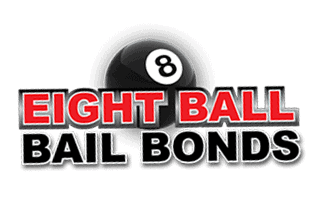What Are the Different Types of Bail Bonds?
When you’re arrested, you don’t want to stay in jail for a moment more than you have to. Bail bonds, while not exactly a “get out of jail free” card, do allow you to await trial at home instead of in a dark, uncomfortable cell.
It may surprise you to know there’s more than one bail bond type. In this guide, you’ll learn about the different types of bail bonds in Sacramento, CA, and how they work.
Surety Bond
Surety bonds are the most common type of bail bond and probably the type you’re familiar with. For a surety bond, the bond agency will pay the client’s bail upfront with the expectation that they’ll pay back the money by a set date. Surety bonds generally cost 10% of the total amount of bail.
Surety bonds are popular because bail costs can be steep, and many people don’t have thousands sitting around to pay those costs. By opting for a surety bond, clients enjoy the convenience of paying off their bail a little at a time.
This bail bond type works like so:
- You’re arrested by the police.
- At a hearing, a judge sets your bail amount.
- You contact a bail bond agency, such as Eight Ball Bail Bonds.
- The bail bond agency discusses your financial obligations with you. If you agree, the agency pays your bail in full once you’ve paid the required fees.
- You’re released from jail. Remember that you must appear in court on the set date. If you don’t, you’ve skipped bail, and the court will put out a warrant for your arrest.
Cash Bail
Cash bail is ideal if you have the money to pay your bail upfront in cash. Just like with a surety bond, once you’ve paid your bail, you’re free to go. Once your case is over, you’ll get the bail money back.
Property Bond
Property bail bonds are bonds paid for with collateral, such as a vehicle or house. For a property to be accepted for bail, its value usually needs to be 1.5 times the amount of your bail.
This bail bond type isn’t legal in every state, and property bonds come with some big downsides. If you don’t show up in court, the court can seize your property. Additionally, sorting out the paperwork for property bonds can take weeks, which is certainly less than ideal when you want to go home as soon as possible.
Federal Bond
Federal bail bonds work exactly like surety bonds, except they’re for those who’ve committed a federal crime. Because federal crimes tend to be very serious, federal bail bonds are often quite expensive.
Immigration Bond
Few things are scarier than being arrested for a crime when you’re not a legal U.S. citizen. Immigration bonds exist for non-U.S. citizens. They work the same as regular bail bonds, but they have very strict requirements and can be difficult to get.
Citation Release
Citation release is an alternative to bail bonds for those who haven’t been taken into custody. For example, if you’re arrested for a traffic violation, an officer may issue you a citation release to release you from custody. You’ll need to appear back in court by a specified date.
Recognizance Release
If a judge decides to let you go home without requiring you to pay bail, that’s called a recognizance release. Courts may offer a recognizance release if the judge believes that you’ll show up for your court date as promised.
Recognizance release is usually offered to defendants with no prior record and those who’ve committed a minor crime.
A judge might impose certain conditions on you in exchange for recognizance release. You might have to undergo counseling or drug testing, for example. You may also have to comply with a curfew or wear an ankle bracelet.
Need a Bail Bond? Reach Out to Us 24/7
If you need a bail bond for yourself or a loved one, you can count on Eight Ball Bail Bonds. We can offer you an easy-to-get surety bond 24 hours a day. We make the bail bond process as simple as possible, and we’ll never charge more than 10% of your total bail amount.
If you have questions about which bail bond type is right for you, contact us today.







